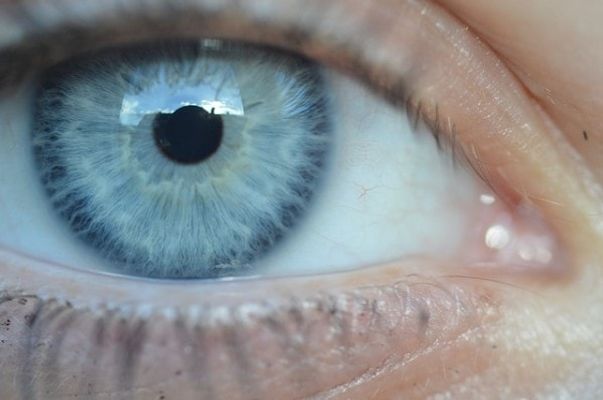4.5.8
Future Tense - Irregulars
Irregular Future Stem
Irregular Future Stem
The stem for most verbs is the infinitive, but there are some irregular stems. They use regular future endings.


Être - ser
Être - ser
- Je serai - I will be.
- Tu seras - you (singular) will be.
- Il/elle/on sera - he/she/one will be.
- Nous serons - we will be.
- Vous serez - you (plural/formal) will be.
- Ils/elles seront - they will be.


Avoir - aur
Avoir - aur
- J'aurai - I will have.
- Tu auras - you (singular) will have.
- Il/elle/on aura - he/she/one will have.
- Nous aurons - we will have.
- Vous aurez - you (plural/formal) will have.
- Ils/elles auront - they will have.


Aller - ir
Aller - ir
- J'irai - I will go.
- Tu iras - you (singular) will go.
- Il/elle/on ira - he/she/one will go.
- Nous irons - we will go.
- Vous irez - you (plural/formal) will go.
- Ils/elles iront - they will go.


Faire - fer
Faire - fer
- Je ferai - I will do.
- Tu feras - you (singular) will do.
- Il/elle/on fera - he/she/one will do.
- Nous ferons - we will do.
- Vous ferez - you (plural/formal) will do.
- Ils/elles feront - they will do.
Irregular Future Stem
Irregular Future Stem
The stem for most verbs is the infinitive, but there are some irregular stems. They use regular future endings.


Voir - verr
Voir - verr
- Je verrai - I will see.
- Tu verras - you (singular) will see.
- Il/elle/on verra - he/she/one will see.
- Nous verrons - we will see.
- Vous verrez - you (plural/formal) will see.
- Ils/elles verront - they will see.


Devoir - devr
Devoir - devr
- Je devrai - I will have to.
- Tu devras - you (singular) will have to.
- Il/elle/on devra - he/she/one will have to.
- Nous devrons - we will have to.
- Vous devrez - you (plural/formal) will have to.
- Ils/elles devront - they will have to.


Pouvoir - pourr
Pouvoir - pourr
- Je pourrai - I will be able to.
- Tu pourras - you (singular) will be able to.
- Il/elle/on pourra - he/she/one will be able to.
- Nous pourrons - we will be able to.
- Vous pourrez - you (plural/formal) will be able to.
- Ils/elles pourront - they will be able to.


Savoir - saur
Savoir - saur
- Je saurai - I will know.
- Tu sauras - you (singular) will know.
- Il/elle/on saura - he/she/one will know.
- Nous saurons - we will know.
- Vous saurez - you (plural/formal) will know.
- Ils/elles sauront - they will know.


Vouloir - voudr
Vouloir - voudr
- Je voudrai - I will want.
- Tu voudras - you (singular) will want.
- Il/elle/on voudra - he/she/one will want.
- Nous voudrons - we will want.
- Vous voudrez - you (plural/formal) will want.
- Ils/elles voudront - they will want.
Irregular Future Stem
Irregular Future Stem
The stem for most verbs is the infinitive, but there are some irregular stems. They use regular future endings.


Venir - viendr
Venir - viendr
- Je viendrai - I will come.
- Tu viendras - you (singular) will come.
- Il/elle/on viendra - he/she/one will come.
- Nous viendrons - we will come.
- Vous viendrez - you (plural/formal) will come.
- Ils/elles viendront - they will come.


Tenir - tiendr
Tenir - tiendr
- Je tiendrai - I will hold.
- Tu tiendras - you (singular) will hold.
- Il/elle/on tiendra - he/she/one will hold.
- Nous tiendrons - we will hold.
- Vous tiendrez - you (plural/formal)will hold.
- Ils/elles tiendront - they will hold.


Mourir - mourr
Mourir - mourr
- Je mourrai - I will die.
- Tu mourras - you (singular) will die.
- Il/elle/on mourra - he/she/one will die.
- Nous mourrons - we will die.
- Vous mourrez - you (plural/formal) will die.
- Ils/elles mourront - they will die.


Falloir - faudr
Falloir - faudr
- This is only used in the 'il' form, to say it is necessary.
- Il faudra - it will be necessary.


Pleuvoir - pleuvr
Pleuvoir - pleuvr
- This is only used in the 'il' form, to say it is raining.
- Il pleuvra - it will rain.
1Identity & Culture
1.1Me, my family and friends
1.1.1Describing Yourself
1.1.2Physical Appearance
1.1.3Personality
1.1.4Friends
1.1.5Opinions on Friends
1.1.6Relationships
1.1.7Family
1.1.8Other Family Members
1.1.9Me, My Friends & My Family - Listening
1.1.10Pets
1.1.11Style & Fashion
1.1.12Shopping for Clothes
1.1.13Materials
1.1.14Exam-Style Questions - Pets
1.2Time
1.3Technology in Everyday Life
1.4Free-Time Activities
1.4.1In Your Free-Time
1.4.2Music
1.4.3Music - Listening
1.4.4Cinema
1.4.5TV
1.4.6Cinema & TV - Listening
1.4.7Food
1.4.8Eating Out
1.4.9Opinions on Food
1.4.10Fruits
1.4.11Vegetables
1.4.12Other Food
1.4.13Meat
1.4.14Fish
1.4.15Food - Listening
1.4.16Sport
1.4.17Why Do You Play Sport?
1.4.18Different Sports
1.4.19Exam-Style Questions - Sport
1.4.20Exam-Style Questions - Thierry Henry
1.5Festivals in French-Speaking Countries
2Areas of Interest
2.1Home, Town, Neighbourhood & Region
2.2Social Issues
3Study & Employment
4Common Tenses
4.1Present Tense
4.1.1Regular ER Verbs
4.1.25 Common ER Verbs
4.1.3Regular IR Verbs
4.1.45 Common IR Verbs
4.1.5Regular RE Verbs
4.1.65 Common RE Verbs
4.1.7Reflexive Verbs
4.1.8Irregular ER Verbs - Aller
4.1.9Stem-Changing Verbs
4.1.10Irregular IR Verbs Like 'Partir'
4.1.11Irregular IR Verbs That End in 'vrir'
4.1.12Irregular IR Verbs That End in 'enir'
4.1.13Irregular IR Verbs With No Pattern
4.1.14Modal Irregular IR Verbs
4.1.15Irregular RE Verbs
4.1.16Irregular RE Verbs With No Pattern
4.1.17ER Present Participles
4.1.18IR Present Participle
4.1.19RE Present Participle
4.1.20Irregular Present Participles
4.1.21Avoir
4.1.22Être
4.2Perfect Tense
4.2.1Perfect Tense - Regular ER Verbs
4.2.2Perfect Tense - Regular IR Verbs
4.2.3Perfect Tense - Regular RE Verbs
4.2.4Irregular Past Participles
4.2.5Irregular Past Participles 2
4.2.6Être ER Verbs
4.2.7Être IR Verbs
4.2.8Être RE Verbs
4.2.9Irregular Être - 'Venir'
4.2.10Irregular Être - 'Naître' & 'Mourir'
4.2.11Perfect Infinitive - Using Avoir
4.2.12Perfect Infinitive - Using Être
4.3Imperfect Tense
4.3.1Imperfect Tense - Regular ER Verbs
4.3.2Imperfect Tense - 5 Common ER Verbs
4.3.3Imperfect Tense - Regular IR Verbs
4.3.4Imperfect Tense - 5 Common IR Verbs
4.3.5Imperfect Tense - Regular RE Verbs
4.3.6Imperfect Tense - 5 Common RE Verbs
4.3.7Imperfect Tense - Irregular ER Verbs
4.3.8Imperfect Tense - Irregular IR Verbs
4.3.9Imperfect Tense - Irregular RE Verbs
4.3.10Imperfect Tense - Être
4.4Imperfect vs Perfect
5Advanced Tenses
5.1Conditional Tense
5.2Pluperfect Tense
5.3Present Subjunctive
5.3.1Present Subjunctive - Regular ER Verbs
5.3.2Present Subjunctive - Regular IR Verbs
5.3.3Present Subjunctive - Regular RE Verbs
5.3.4Present Subjunctive - Two-Stem Irregulars
5.3.5Present Subjunctive - Complete Irregulars
5.3.6Present Subjunctive - Using the Subjunctive
5.3.7Present Subjunctive - Imperative
6Extra Grammar
6.1The Passive Voice
6.2Pronouns
6.3Asking Questions
6.4Nouns
6.5Prepositions
6.7Quantifiers & Intensifiers
6.8Adjectives
6.8.1Adjectives Must Agree
6.8.2Irregular Agreements
6.8.3No Pattern Irregulars
6.8.4Position of Adjectives: After the Noun
6.8.5Position of Adjectives: Before the Noun
6.8.6Position of Adjectives: Changing Meanings
6.8.7Comparative Adjectives
6.8.8Superlative Adjectives
6.8.9Good, Better, Best
6.8.10Demonstrative Adjectives
6.8.11Indefinite Adjectives
Jump to other topics
1Identity & Culture
1.1Me, my family and friends
1.1.1Describing Yourself
1.1.2Physical Appearance
1.1.3Personality
1.1.4Friends
1.1.5Opinions on Friends
1.1.6Relationships
1.1.7Family
1.1.8Other Family Members
1.1.9Me, My Friends & My Family - Listening
1.1.10Pets
1.1.11Style & Fashion
1.1.12Shopping for Clothes
1.1.13Materials
1.1.14Exam-Style Questions - Pets
1.2Time
1.3Technology in Everyday Life
1.4Free-Time Activities
1.4.1In Your Free-Time
1.4.2Music
1.4.3Music - Listening
1.4.4Cinema
1.4.5TV
1.4.6Cinema & TV - Listening
1.4.7Food
1.4.8Eating Out
1.4.9Opinions on Food
1.4.10Fruits
1.4.11Vegetables
1.4.12Other Food
1.4.13Meat
1.4.14Fish
1.4.15Food - Listening
1.4.16Sport
1.4.17Why Do You Play Sport?
1.4.18Different Sports
1.4.19Exam-Style Questions - Sport
1.4.20Exam-Style Questions - Thierry Henry
1.5Festivals in French-Speaking Countries
2Areas of Interest
2.1Home, Town, Neighbourhood & Region
2.2Social Issues
3Study & Employment
4Common Tenses
4.1Present Tense
4.1.1Regular ER Verbs
4.1.25 Common ER Verbs
4.1.3Regular IR Verbs
4.1.45 Common IR Verbs
4.1.5Regular RE Verbs
4.1.65 Common RE Verbs
4.1.7Reflexive Verbs
4.1.8Irregular ER Verbs - Aller
4.1.9Stem-Changing Verbs
4.1.10Irregular IR Verbs Like 'Partir'
4.1.11Irregular IR Verbs That End in 'vrir'
4.1.12Irregular IR Verbs That End in 'enir'
4.1.13Irregular IR Verbs With No Pattern
4.1.14Modal Irregular IR Verbs
4.1.15Irregular RE Verbs
4.1.16Irregular RE Verbs With No Pattern
4.1.17ER Present Participles
4.1.18IR Present Participle
4.1.19RE Present Participle
4.1.20Irregular Present Participles
4.1.21Avoir
4.1.22Être
4.2Perfect Tense
4.2.1Perfect Tense - Regular ER Verbs
4.2.2Perfect Tense - Regular IR Verbs
4.2.3Perfect Tense - Regular RE Verbs
4.2.4Irregular Past Participles
4.2.5Irregular Past Participles 2
4.2.6Être ER Verbs
4.2.7Être IR Verbs
4.2.8Être RE Verbs
4.2.9Irregular Être - 'Venir'
4.2.10Irregular Être - 'Naître' & 'Mourir'
4.2.11Perfect Infinitive - Using Avoir
4.2.12Perfect Infinitive - Using Être
4.3Imperfect Tense
4.3.1Imperfect Tense - Regular ER Verbs
4.3.2Imperfect Tense - 5 Common ER Verbs
4.3.3Imperfect Tense - Regular IR Verbs
4.3.4Imperfect Tense - 5 Common IR Verbs
4.3.5Imperfect Tense - Regular RE Verbs
4.3.6Imperfect Tense - 5 Common RE Verbs
4.3.7Imperfect Tense - Irregular ER Verbs
4.3.8Imperfect Tense - Irregular IR Verbs
4.3.9Imperfect Tense - Irregular RE Verbs
4.3.10Imperfect Tense - Être
4.4Imperfect vs Perfect
5Advanced Tenses
5.1Conditional Tense
5.2Pluperfect Tense
5.3Present Subjunctive
5.3.1Present Subjunctive - Regular ER Verbs
5.3.2Present Subjunctive - Regular IR Verbs
5.3.3Present Subjunctive - Regular RE Verbs
5.3.4Present Subjunctive - Two-Stem Irregulars
5.3.5Present Subjunctive - Complete Irregulars
5.3.6Present Subjunctive - Using the Subjunctive
5.3.7Present Subjunctive - Imperative
6Extra Grammar
6.1The Passive Voice
6.2Pronouns
6.3Asking Questions
6.4Nouns
6.5Prepositions
6.7Quantifiers & Intensifiers
6.8Adjectives
6.8.1Adjectives Must Agree
6.8.2Irregular Agreements
6.8.3No Pattern Irregulars
6.8.4Position of Adjectives: After the Noun
6.8.5Position of Adjectives: Before the Noun
6.8.6Position of Adjectives: Changing Meanings
6.8.7Comparative Adjectives
6.8.8Superlative Adjectives
6.8.9Good, Better, Best
6.8.10Demonstrative Adjectives
6.8.11Indefinite Adjectives
Unlock your full potential with Seneca Premium
Unlimited access to 10,000+ open-ended exam questions
Mini-mock exams based on your study history
Unlock 800+ premium courses & e-books